Highlights
- Fall 2017 courses finished up in December and made quite an impact. This term, with 318 supported courses, students edited 7,200 articles, created 635 new entries, and added 5 million words to Wikipedia. That’s equivalent to about 11.5% of the last print edition of the Encyclopædia Britannica! We’re proud of our efforts to scale the Classroom Program, and hope to see even more engagement this spring.
- Not only did students add more words last year than ever, but it was also good quality work! A number of articles students worked on this term received recognition on Wikipedia’s main page in the Did You Know section. Among these were articles about functional accounts of emotion, the dual systems model, the immigrant paradox, perspective-taking, and the ovulatory shift hypothesis.
- Two new web pages detailing our 2018 initiatives launched this month. Interested supporters can find out more about our commitment to increasing topics of importance to an informed citizenry through Future of Facts, and read about our continued efforts to improve Wikipedia’s coverage of scientific topics and representation of women in STEM through Sustaining Science.
- This month, we featured Andrew Hatelt’s particularly remarkable story on our blog. Andrew, a student at York University, won his university’s fourth-year faculty writing prize for the Wikipedia article he created in a Wiki Education supported course. Universities are increasingly recognizing the importance of digital writing and non-traditional assignments like editing Wikipedia.
- Outreachy intern Candela Jiménez Girón started on December 4, and has made rapid progress on user experience improvements that will smooth the way for Art + Feminism 2018 and other programs that make heavy use of Programs & Events Dashboard. Not only does her work help Wiki Education update and improve our resources, but also provides her with valuable experience in a free and open-source software project.
Programs
Educational Partnerships
In December, Wiki Education attended the American Geophysical Union’s annual meeting in New Orleans. We recruited several university instructors interested in assigning their students to improve Wikipedia’s coverage of geology and earth science. One prior student of our Classroom Program approached us and commented that doing a Wikipedia assignment gave him more confidence in his understanding of the material. Attendees at this meeting were especially excited that content mastery is one learning outcome students experience when they turn their research projects into Wikipedia articles.
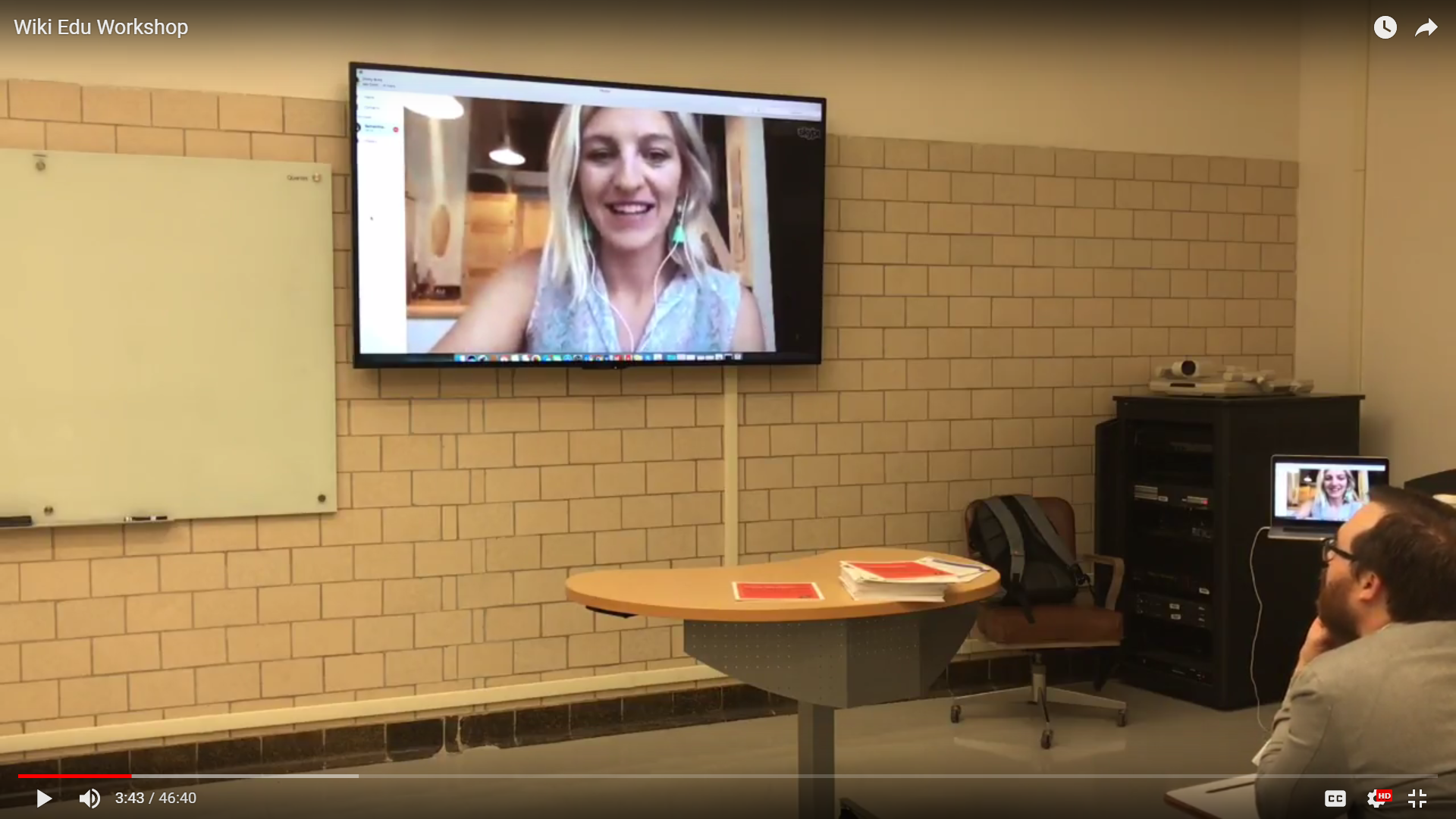
December is a busy month for Outreach Manager Samantha Weald, as she works closely with instructors joining the Classroom Program for the first time, helping them navigate Wiki Education’s suite of tools and training materials for them and their students. In addition to running two outreach webinars, one for Butte College in California, and another for the University of Maryland, she worked to onboard 47 courses taught by new instructors in preparation for the Spring 2018 term.
Classroom Program
Final impact of the Classroom Program for Fall 2017 in numbers:
- 318 Wiki Education-supported courses were completed (175, or 55%, were led by returning instructors)
- 6,914 student editors were enrolled
- 64.1% of students were up-to-date with the online training
- Students edited 7,200 articles, created 635 new entries, and added 5 million words.
December saw the final push of our busy student-contributors. Wikipedia Content Experts Ian Ramjohn and Shalor Toncray spent hours poring over student contributions, helping with edits, and moving content from Sandboxes to live Wikipedia pages. While Wikipedia Content Experts Ian Ramjohn and Shalor Toncray were providing support for instructors and closing out hundreds of classes, Classroom Program Manager Helaine Blumenthal went out on maternity leave and her replacement, Will Kent, took over as Program Manager.
We held our final office hours of the term in December. They are always productive sessions during which instructors share triumphs and concerns, or ask questions that they have been considering all term. We are looking forward to offering more office hours in 2018 since they are ideal spaces to gather programmatic feedback and connect with instructors!
We are all extremely proud of our Classroom Program participants, students and instructors alike. The numbers speak for themselves, but the individual contributions really shine. This was an impressive year for our program. We are grateful for all of the new instructors who took a risk to try something new and exciting with this assignment. We also appreciate all of the instructors who have worked with us before and enthusiastically returned again.
Student work highlights:
For women, trying to break into the male dominated field of medicine as a physician was a difficult task in the early 20th century. Ailie Gale, however, met this challenge head on and upon graduating in 1905, was one of only four women in the graduating class. After graduating, Gale decided against practicing in the United States in favor of joining a Methodist mission and working in China as a physician. While there was some resistance to Western medicine over traditional Chinese remedies, an overall lack of doctors in China gave Gale a greater opportunity to practice medicine than she would have enjoyed in the United States. Gale’s initial objectives were to spread and promote Christianity, something that eventually changed to a focus on the economic and social needs of rural China. During her stays in China, Gale became the hospital administrator of Chadwick Memorial Hospital, which she helped restore. Throughout her work, Gale experienced resistance to “outsiders” as well as increasing political tensions due to the Second Sino-Japanese War, which necessitated her reluctant evacuation. Gale would keep returning to China and continuing her efforts to help others until 1950, when the Methodist Episcopal Board pulled their missionaries out of China due to the Communist victory of Chinese Communist Revolution in 1949. If not for University of Pennsylvania educator Kent Bream’s Medical Missionaries to Community Partners class, Ailie Gale would have still lacked an article on Wikipedia. Thanks to them, the gender gap closes just a tiny bit more.
One student in Sara Galletti’s Art in Renaissance Italy class at Duke University chose to improve the article on Jacobello del Fiore, a Venetian artist in the late fourteenth century and early fifteenth century. Theorized to be the “Master of the Giovaneli Madonna” that created a Crucifixion piece currently held in the Matthiesen Collection in London and the Virgin and Child of Piazzo Giovaneli, del Fiore was commissioned to decorate the Sala del Maggior Consiglio (Hall of the Great Council) in the Doge’s Palace, an opulent Venetian Gothic style palace in Venice, Italy.
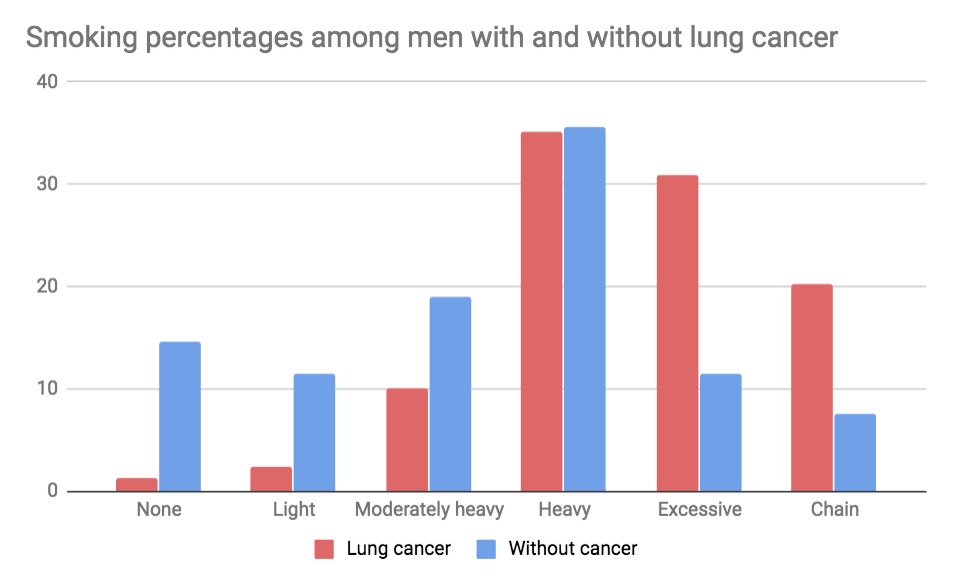
Image: File:Wynder and Graham Figure 3.png, Littleskimonkey, CC BY-SA 4.0, via Wikimedia Commons.
There’s a real sense of satisfaction in writing a Wikipedia article that covers almost everything that’s known about a topic in a neat, coherent package. But it can be equally satisfying to write an article that doesn’t even include everything that’s been written about the topic on Wikipedia. With bigger topic areas the best article provides short, relevant, balanced summaries of the topics, while pointing the reader to more detailed Wikipedia articles about that topic. Students in George Waldbusser’s Biogeochemical Earth class produced articles of both types, including detailed articles on Nutrient cycling in the Columbia River Basin and Haida Eddies, and a more broadly-focused article on Oceanic carbon cycle.
A Frank Statement was an advertisement put out by tobacco companies in 1954. It was designed to create doubt in the minds of the public about the science research into the health effects of smoking. A student in Robert Bazell’s Issues in Medicine and Public Health class expanded an existing Wikipedia article about the advertisement, putting it in context and documenting the strategy of social engineering behind it. An important first step in making the connection between cigarette smoking and lung cancer came with the publication of the 1950 Wynder and Graham Study. While it’s exceedingly rare to write a Wikipedia article about a single research study, this study and its impact is widely discussed by secondary sources.
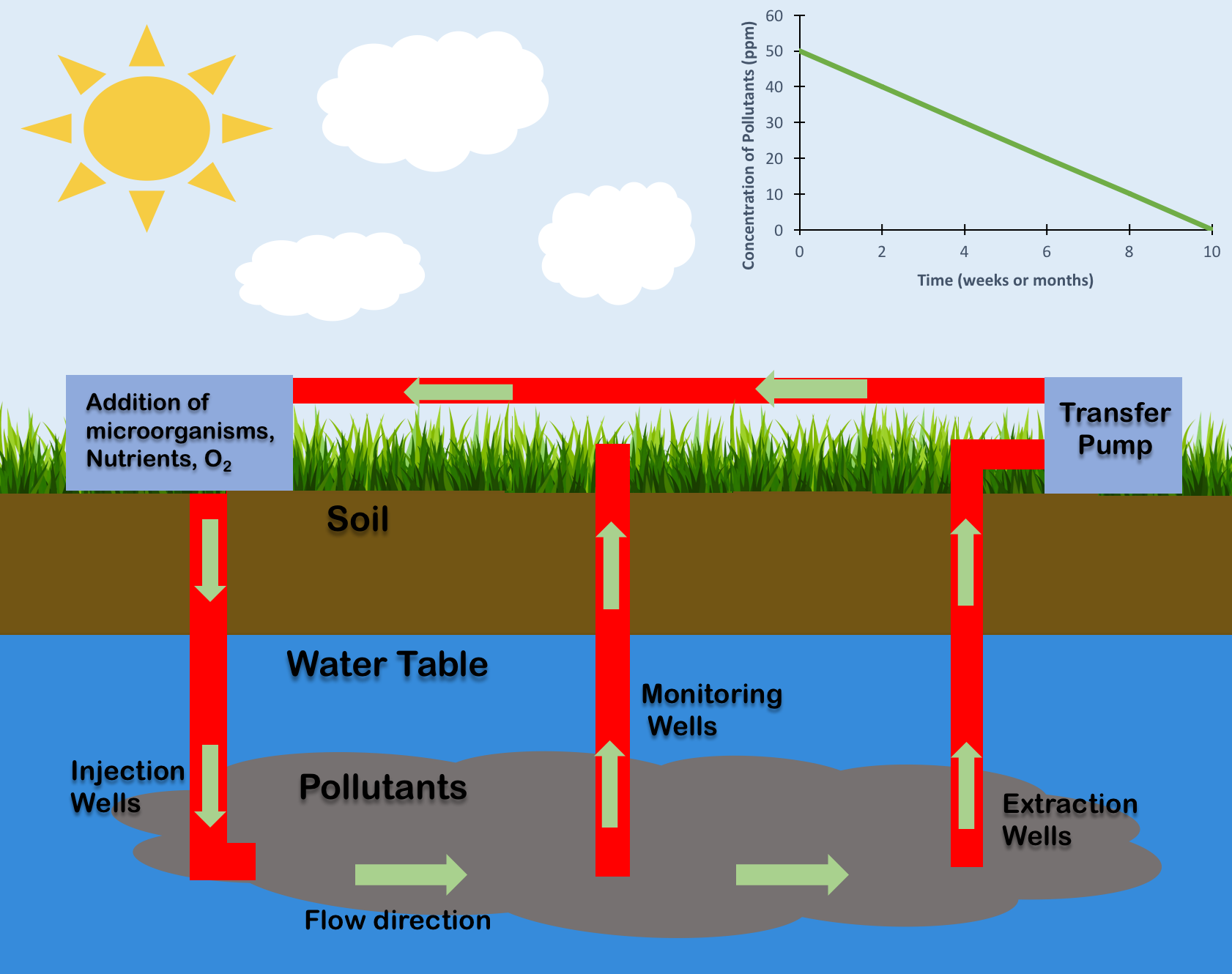
Image: File:In Situ Bioremediation.png, Hoodlind, CC BY-SA 4.0, via Wikimedia Commons.
Scotlandite is a sulfite mineral named in honor of Scotland, where it was first described. Tantalcarbide is a rare mineral first discovered in the Nizhnetagilsky District in the Urals. The mineral danielsite was first discovered in Western Australia. Wikipedia articles for these minerals, along with metarauchite, mammothite, hotsonite, simmonsite, capgaronnite, peretaite, lahnsteinite, sheldrickite, gottlobite, ucabindiite, and bluebellite, were created by students in Bernhardt Saini-Eidukat’s Mineralogy class.
Several students in Sara Galletti’s Art in Renaissance Italy class at Duke University uploaded lovely photographs of art from Renaissance Italy. The first is a closeup look at part of the Carrand Triptych, which is believed to have been created by Giovanni di Francesco. Another is a page from Libro de’ Disegni, which contains work by Giorgio Vasari.
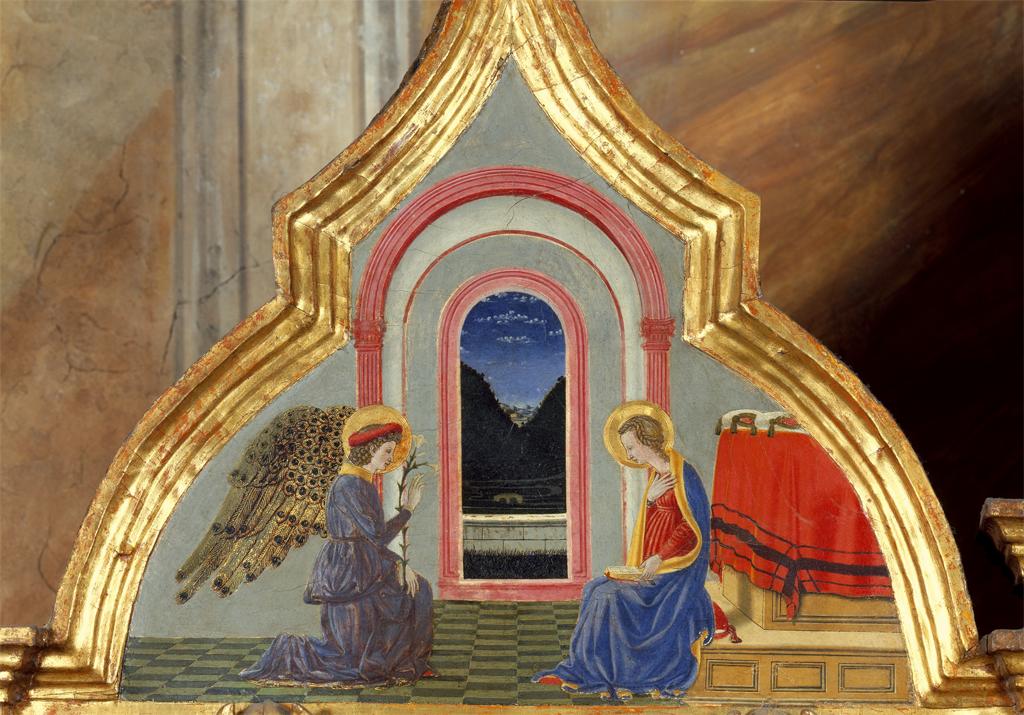
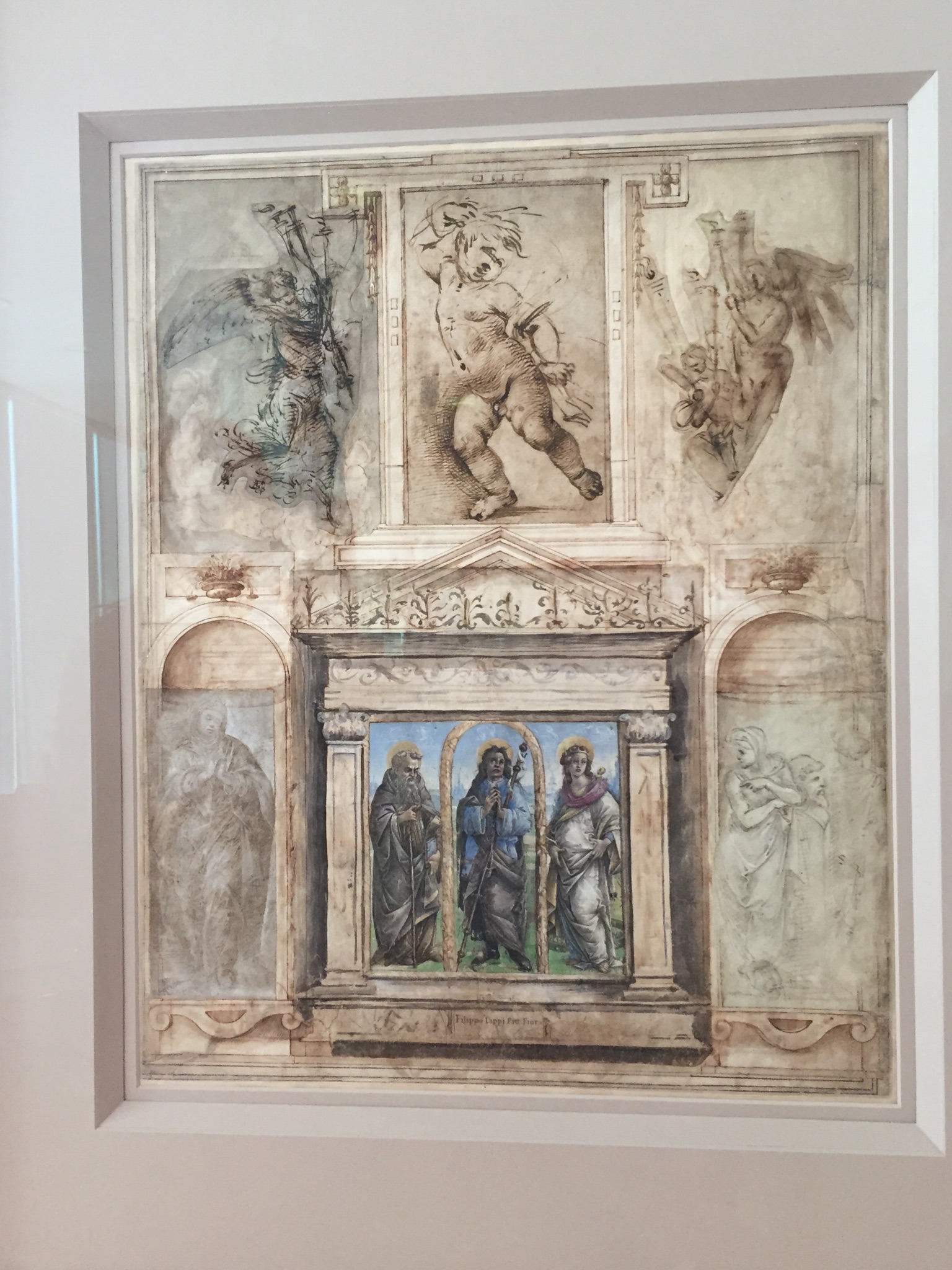
And here is some notable student work, nominated to appear on the Did You Know section of Wikipedia’s main page:
- Functional accounts of emotion
- Dual systems model
- Immigrant paradox
- Perspective-taking
- Ovulatory shift hypothesis
Community Engagement
Community Engagement Manager Ryan McGrady spent most of his time this month preparing for the kickoff of our Wikipedia Fellows pilot. After we made the initial announcement in November, we saw an exciting outpouring of interest in the project. In total, we received about 90 applications! Ryan reviewed the applications and collaborated with our partners at the National Women’s Studies Association, Midwest Political Science Association, and American Sociological Association to select our 9-person pilot cohort. Our hope is that the pilot will be successful enough to continue on a larger scale in the future. Many of the applicants who will not be participating are nonetheless highly qualified and we’re delighted that many have confirmed interest to join us in the future.
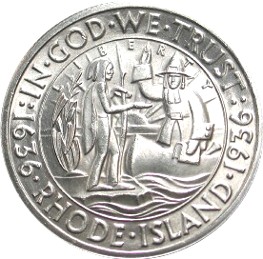
Image: Rhode island tercentenary half dollar commemorative reverse.jpg, uploaded by User:Bobby131313, public domain, via Wikimedia Commons.
There are several highlights from Visiting Scholars this month. Gary Greenbaum at George Mason University developed the article on the Rhode Island Tercentenary half dollar, bringing it to Featured Article status. The commemorative fifty-cent piece was struck in 1936 and depicts the state’s founder, Roger Williams. Oddly, although it was intended to honor the 300th anniversary of Providence, the city isn’t mentioned on the coin. The coins sell for hundreds of dollars today. Gary also made major improvements to the article on 11th U.S. President, James K. Polk. The article had been a Featured Article from 2005–2008, but Featured Articles are subject to review if the quality doesn’t remain sufficiently high. The status was removed in 2008, and with Gary’s efforts it is back in the peer review process.
Barbara Page at the University of Pittsburgh continued to improve Wikipedia’s coverage of women’s health topics. This month, she made substantial improvements to articles including cystocele, vagina, and miscarriage and grief.
At Brown University, Visiting Scholar Eryk Salvaggio’s article about algorithmic bias appeared on Wikipedia’s Main Page as a Did You Know:
“[Did You Know] that algorithmic bias can sometimes lead computers to produce homophobic, racist, and sexist results?”
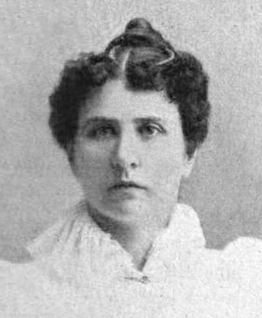
Image: Lurana Waterhouse Sheldon Ferris.png, by H. L. Green, public domain, via Wikimedia Commons.
Finally, as of the end of December, Rosie Stephenson-Goodknight has created or improved an incredible 229 articles about women writers as Visiting Scholar at Northeastern University. A great example from this month is Lurana W. Sheldon (1862-1945), an American novelist, poet, lecturer, editor of two weekly newspapers, and activist in support of suffrage and opposed to prohibition. As the article says, “She claimed to have earned her living in fifteen different and totally dissimilar lines of business, including bookkeeping, business management, journalism, work in a chemical laboratory, buying dry goods, and writing stories.”
Program Support
Communications
This month, we featured some stories of exceptional student work on our blog. Andrew Hatelt, a student at York University, won his university’s fourth-year faculty writing prize for the Wikipedia article he created in a Wiki Education-supported course. We also featured a guest contributor on our blog: Ariella Rotramel, Vandana Shiva Assistant Professor of Gender and Women’s Studies at Connecticut College, shared her experiences teaching with Wikipedia.
In collaboration with Wiki Project Med Foundation, Osmosis, and University of California San Francisco Professor Amin Azzam, we also developed a new resource for medical studentsto use when editing Wikipedia.
Blog posts:
- Welcome, Will! (December 1)
- Roundup: American Literature Since 1865 (December 5)
- Monthly Report, October 2017 (December 6)
- Student at York University wins faculty writing prize for Wikipedia article (December 7)
- Adding anthropological perspectives to Wikipedia (December 8)
- Roundup: Universal Human Rights Month (December 11)
- Wiki Education recruiting Geophysicists this week at AGU (December 11)
- Host a webinar about teaching with Wikipedia (December 15)
- Roundup: International Migrants Day (December 18)
- Welcome Outreachy intern Candela Jiménez Girón (December 19)
- Teaching with Wikipedia, the Fall 2017 Edition (December 20)
- Roundup: Eastern European Literature (December 26)
- Video helps medical students edit Wikipedia (December 28)
Digital Infrastructure
In December, we added several new features to the Dashboard for tracking specific topic areas and generating more detailed data reports, completed one major upgrade of the Dashboard’s software platform, and made considerable progress on another. The project reached a new milestone in code contributions, with now more than 60 contributors.
Outreachy intern Candela Jiménez Girón started on December 4, and has made rapid progress on user experience improvements that will smooth the way for Art + Feminism 2018 and other programs that make heavy use of Programs & Events Dashboard. Outreachy and Google Summer of Code alum Sejal Khatri also received a Wikimedia Foundation Project Grantto further improve the Dashboard’s support for edit-a-thons and make its mobile interface better.
Product Manager Sage Ross updated the Wiki Education Dashboard to use the newest version of the Ruby programming language; dashboard.wikiedu.org now runs Ruby 2.5 (along with the latest release of the Ruby on Rails web framework). Under the hood the Dashboard is faster than ever, and work is underway to upgrade its JavaScript user interface to follow best practices and use the newest version of the React framework.
Finance & Administration / Fundraising
Finance & Administration
For the month of December, expenses were $138,457 versus the approved budget of $182,842. The ($44,385) variance can be attributed to: administrative professional services slotted for December occurred in November ($11K), unused Program Travel allotment ($9K) as well as unused allotment for Program outside services ($19K) and other direct operational costs ($5K).
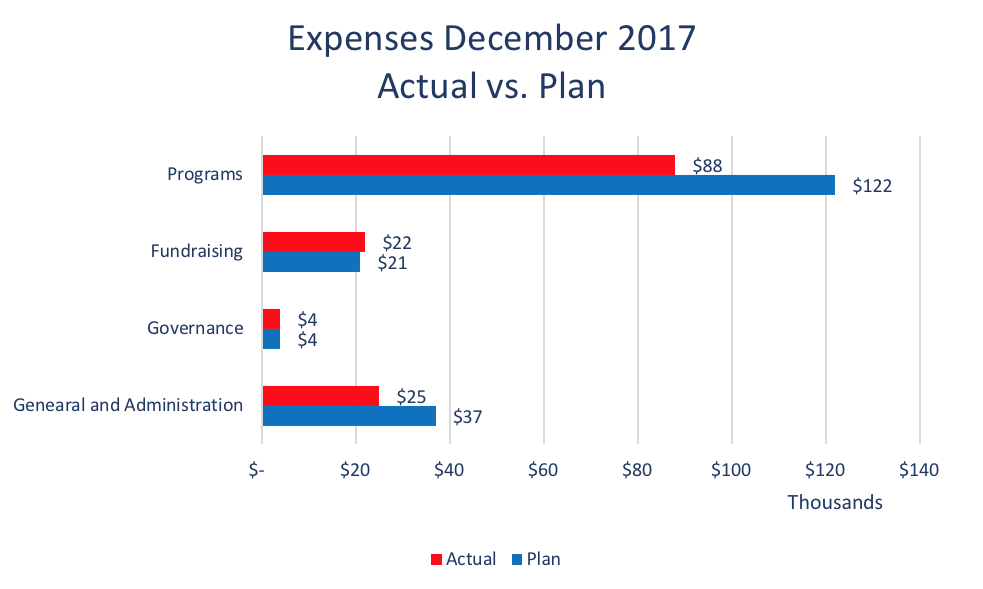
Our year-to-date expenses of $897,856 are less than the budgeted expenses of $1,070,868. The difference of $173,012 is largely due to unexpected change in personnel ($41K), Professional fees and research ($67K), Travel (43K) and Operational expenses particularly in Programs and Fundraising ($22,000).
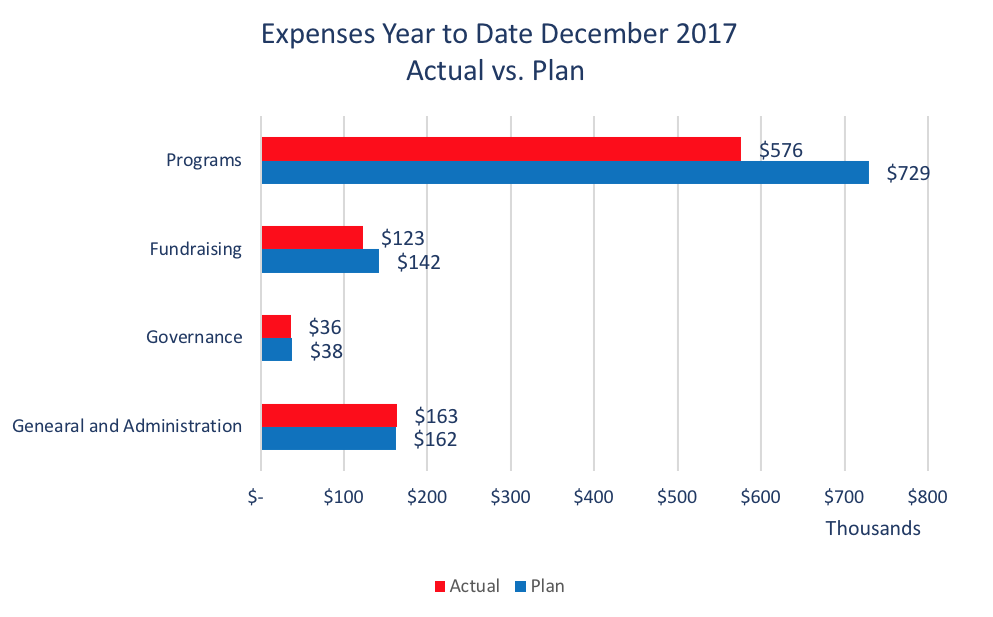
Fundraising
In December we continued to cultivate relationships with funders who we felt might be interested in Wiki Education because our work on the Future of Facts, Guided Editing, and Sustaining Science initiatives, including launching two new pages on our website to highlight our Future of Facts and Sustaining Science initiatives.
Executive Director Frank Schulenburg and Director of Development and Strategy TJ Bliss traveled to New York City for meetings with several potential funders and partners. We are continuing to experiment with our approach to fundraising with Topic Sponsorships.
Office of the ED
- Current priorities
- Preparing the in-person board meeting and the all-staff meeting in early 2018
- Supporting the development work
In December, Frank continued working on Wiki Education’s new strategic plan. This work has been informed by input from board members, staff, and members of the senior leadership team of the organization. The plan will inform the work of Wiki Education for the next three years and is expected to be published in May 2018.
Frank screened several San Francisco firms offering financial services in order to improve the organization’s effectivity in areas like bookkeeping and accounting, reporting, forecasting, etc.
Visitors and guests
- Sue Gardner, board member
- Lorraine Hariton, board member
- Bob Hendrickson, publisher
- Sören Brandes, Wikipedian
